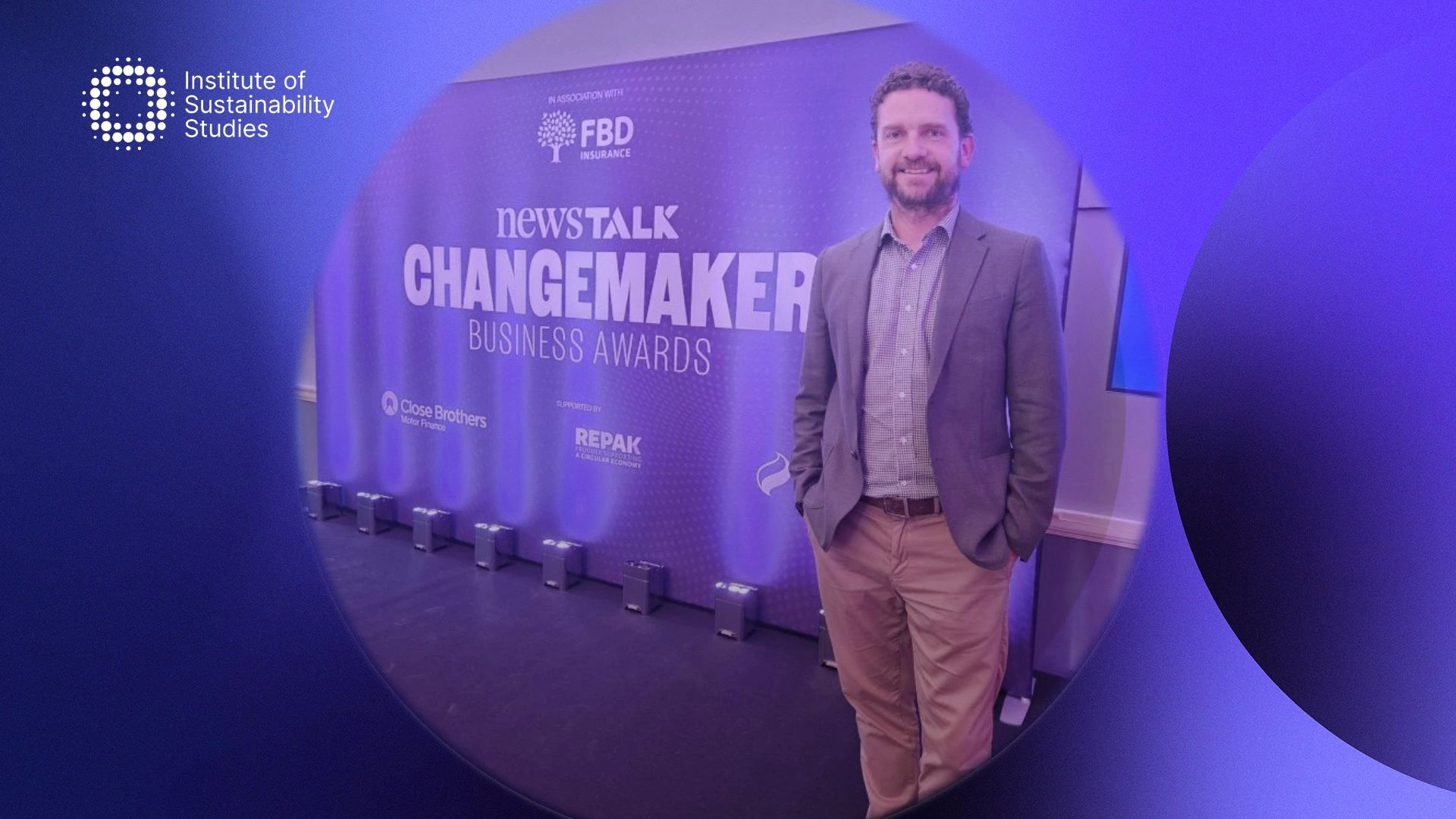Those communities with the lowest climate footprints are the ones most affected by the climate crisis, highlighting a crucial aspect of environmental sustainability. These individuals are impacted by drastic weather events such as droughts, storms, and floods which threaten their livelihoods. Climate change is deeply connected with worldwide patterns of inequality. Many experts believe by appropriately tackling climate change we can tackle inequality as well. Businesses contribute significantly to climate change and therefore, have a major role to play in helping these affected and disadvantaged communities to build up resilience. Continue reading to learn why businesses should care about climate justice and support inclusive solutions.
About climate justice and how climate change is a societal problem
The climate emergency is already having a significant effect on communities around the world. According to the World Bank, the primary cause of up to 132 million people falling into severe poverty by 2030 is climate change. The urgent need to link connected environmental repercussions with morality, social justice, and the climate emergency has given rise to climate justice.
Climate justice acknowledge that sexism, racism, and various other kinds of discrimination and historic inequality persist even today. In other words, it recognises that the environmental crisis has differing economic, social, and other negative impacts and these impacts are not distributed equally or created equally. Rather, they exacerbate economic and social inequality, and those with power have a responsibility to protect and improve the rights of the people and communities impacted.
People with disabilities, low-income earners, women and children, and historically disadvantaged communities are those most at risk from worsening conditions. Climate justice means that it is not acceptable for any of these individuals to lack clean water and air and appropriate, accessible, and affordable housing, health resources, and food. It also means that it is unacceptable for people who work in the industries most affected by environmental issues to be abandoned.
Rather, climate justice is about building resilience, re-skilling, and establishing training opportunities for the jobs of the future. Just as sustainability should be an important issue for businesses, so should climate justice. After all, a business is only as resilient as the systems it depends on. Your business depends on vibrant, healthy, equitable, and regenerative social and natural systems despite what industry or sector it operates within.
Why does climate justice matter to businesses?
The climate crisis impacts every single one of us differently. Its effects will be exacerbated for communities that currently face underlying socioeconomic injustices or inequalities. Climate injustice can be experienced across the value chain of the private sector, from suppliers to team members and customers. To push climate justice though, the people who are most affected must be heard.
All sectors have an essential role to play in driving this and achieving climate justice. However, businesses have been late to address this challenge to date. The good news is that recent events and trends have been pushing climate justice to the top of the corporate agenda. COVID-19 exacerbated deep social vulnerabilities and inequalities in the same way climate change has.
Not just that, but it highlighted environmental and human interconnectedness and rapid collective action to recover and respond. Due to this, businesses are increasingly interested in pursuing environmental, social, and governance goals more holistically. Numerous business sustainability leaders are making public pledges to implement sustainability strategies and are highlighting the links between human rights, climate, and economic prosperity.
The general public, employees, investors, and consumers are also increasingly expecting businesses to take action concerning inequality and climate change. The increasing economic and humanitarian costs of climate-related extreme weather events, growing support for civil society movements and worry about job losses have accelerated political action on climate justice .
Following this, businesses are responding by taking action and remaining ahead of changing legal and regulatory requirements. A growing number of businesses are also finally recognising the risks associated with not taking action on climate change. Some of these relate to human rights, supply chain resilience, jobs, and even business competitiveness, support, and models.
How can businesses drive climate justice and support inclusive solutions?
There are numerous ways climate change disproportionately impacts communities and where the private sector can help advance climate action. Firstly, the private sector can help communities build resilience to the physical impacts of climate change. Communities and people are less able to prepare, address, and recover from extreme weather events if they lack access to healthcare, insurance, and financing, or if their rights are not protected.
Businesses can make sure all communities across the value chain are better protected, prepared, and able to recover. Carrying out climate risk assessments could prove useful in comprehending and determining how the climate crisis is impacting not just operations but also communities throughout the value chain. Businesses can also use this as an opportunity to find ways to boost access to their services and products. For example, technologies and medicines, which will ultimately build resilience.
Businesses can too help to uphold human rights in the journey to net zero. In this transition, the development and procurement of renewable energy and decarbonisation technology will require the mining of minerals and metals. For example, ion batteries for electric vehicles and solar panels. The extraction of a lot of these materials, in addition to some of the practices utilised by businesses is often associated with land and water grabs, armed conflict, the denial of workers’ rights to a living wage and decent work, and various human rights cases of abuse.
Therefore, as we move our economies to minimise the effects of the climate emergency, we can make sure business practices uphold human rights and are just. Therefore, companies have a responsibility to make sure that net-zero and climate strategies take the social impacts of these transitions into account. An integrated human rights and climate change impact assessment would act as a vital step in mitigating and preventing harm to individuals, as a result of business activity. Additionally, this transition risks leaving behind communities and workers, who are traditionally dependent on fossil fuel industries.
They are generally dependent on these industries for livelihoods and jobs. Therefore, dialogue, engagement, and planning with stakeholders and workers are crucial when driving a just transition. Many utilities, energy, and other businesses are deeply committed to achieving net-zero emissions in a means which mitigates the potential negative effects on communities and workers. They are working together with various other stakeholders to create practical guidance on how businesses can operationalise, integrate, and plan for just transition strategies into their sustainability plans and practices.
Finally, as we move to a greener economy, we want to make sure that all communities have access to clean energy solutions and technologies. However, not all markets have access to these technologies in the electrical grid. With that in mind, under-resourced communities could very well experience energy insecurity and not have access to efficient, reliable, affordable, and secure energy. Therefore, an important initial step is to identify where there are gaps in accessibility across the supply chain.
In essence, the communities that are contributing to the climate emergency the least and are the least able to adapt and recover from its effects are the ones most impacted. Businesses and companies can recognise their role in contributing to the climate emergency and look to counter this harm by supporting communities to build resilience and transition to net zero in both an equitable and just way. Climate justice goes further than simply value chain resilience, businesses also must acknowledge privilege and address injustices in society associated with climate change impacts and empower underserved and under-resourced communities.
What are the leading businesses doing concerning climate justice?
Leading companies are acknowledging that climate change has differing economic, social, and other negative effects. They understand that these negative effects are not created equally or distributed equally. Leading businesses comprehend the needs of the most vulnerable and marginalised must be prioritised and that businesses are responsible for their historic contributions to the climate emergency and have an important role to play in advancing the solution.
These businesses, across a range of industries, are leading the way in respect to climate justice, by pursuing collaborative and long-term solutions. This refers to investing in process or product design and innovation, sharing best practices, and offering that technology and knowledge to others in a means that increases access. It also refers to inspiring change and leveraging their influence within their value chains to assist others in lessening their environmental and social footprint.
Summary
The climate emergency affects us all differently. Unfortunately, those who contribute the least are the most affected. Businesses have immense power to protect communities and help them build resilience. Additionally, their environmental and social footprints are often significant and it is important to address these and reduce the negative impact. Businesses can become a force for good and not only help the climate crisis but tackle wider issues like inequality. We can save the planet, but we need the support of everyone, and businesses have a big role to play here.










